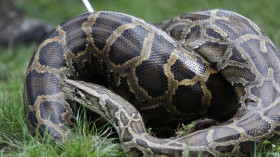It's summertime! For most people, their favorite summer memories are accompanied by sunscreen, sand, grilling out, fireworks, swimming, family, and friends. However, there's another pesky visitor that may be prevalent in those memories depending on who you are: mosquitoes.
Research shows that mosquitoes are attracted to certain compounds found in human skin and sweat. If you've always wondered while you're eaten alive while your brother or best friend has no bites at all, there's a scientific reason for your misery.
Mosquitoes Smell Before They See
A team of biologists from the University of Washington and the California Institute of Technology concluded similar findings in their 2015 study. Before this study, very little was known about how the mosquito selected its prey. So, the team decided to set up an experience using wind tunnels to observe mosquitoes. The tunnels served as an enclosed environment where they could record and track behavior easily.
The key feature of the wind tunnel was a small dark dot on the floor. Researchers released a plume of CO2 into the wind tunnel and observed mosquito behavior when this scent was introduced. With the odor stimulus, the mosquitoes were very clearly attracted to this black dot in an otherwise featureless environment.
To the team, this demonstrated that they may not see a host until they smell it. They also played with adding heat and water vapor to the black dot, which also increased the mosquitoes' affinity for it (after CO2.was released into the tunnel).
Overall, the study found that CO2 was the best signal for a warm-blooded animal and that mosquitoes could sense that from up to 30 feet away. After that initial trigger, mosquitos will begin to use their vision and other body odors to discriminate whether the body is a human, dog, deer, cow, etc. They use this additional information to discriminate against potential hosts.
How a Mosquito Finds Its Target
As the study above indicates, mosquitoes aren't attracted by just one odor or stimulus. It takes a combination of signs for them to locate their target. This research shows that mosquitos use multiple sensory cues to select their hosts. These cues include olfactory, visual, and thermal stimuli. Here are a variety of signals and how they translate into human-mosquito interactions.
1. Body odor
Mosquitoes have an acute sense of smell, and they're attracted to human scents due to an olfactory receptor in their antennae. This is one reason why humans rely so heavily on bug spray and other essential oils (lavender, peppermint, basil, and eucalyptus) as natural repellents.
However, there's another way to enhance the effectiveness of current repellents. According to this 2019 study, Aedes aegypti mosquitoes - responsible for the spread of Zika, yellow fever, dengue fever, and other viruses - detect acidic volatiles in human odor using the IR8a pathway. This pathway is one of the molecules necessary for detecting lactic acid, which is found in human sweat.
When the function of the IR8a pathway is removed, the host-seeking activity declines by about 50 percent. By reinforcing current repellants with DEET or picaridin, it can help humans "disappear" as attractive hosts for mosquitos.
Likewise, understanding how the IR8a pathway works can help develop mosquito attractants. Instead of repelling mosquitos from people, we can work on luring them into traps that attract them based on what we know they're attracted to.
2. Carbon dioxide
Carbon dioxide is yet another way mosquitos locate their prey. Humans emit CO2 when they breathe out, and mosquitos are able to detect the changing levels of CO2 in the environment. The more CO2 in an area, the more mosquitos will move toward that area hoping to find a host.
This study shows that mosquitos prefer pregnant women to non-pregnant women. This is possibly because pregnant women exhale more CO2 than non-pregnant women.
3. Colors
Did you know that what you're wearing can make you a greater target for mosquitos? Black (and other dark colors) may be flattering, but it can also get you bitten more frequently according to this study. Be mindful of this whenever you're going camping, watching fireworks, or sitting by a bonfire!
4. Heat
When mosquitos draw nearer, they're able to detect heat. This is a significant factor in their host selection. Mosquitos will move toward heat sources at desired temperatures.
Humans simply have the right level of heat and water vapor. Our bodies generate heat depending on the surrounding temperature. Other animals often have varied body temperatures, which don't make them as attractive to mosquitos. Studies have also shown that the higher body temperature in pregnant women attracts mosquitos to them.
5. Learned preference
In some cases, mosquitos can learn to prefer a host they associate with sensory cues or previous success. This study found that 20 percent of hosts accounted for 80 percent of disease transmission in a population. Said differently, mosquitoes may be choosing to target just a fraction of people in any given group.
Final Thoughts
If you're a living, breathing, sweating human, it's hard to get rid of mosquitos in your yard or around your house in the hot summer months. They're attracted to you because of the CO2 you breathe out and the way you smell. However, you can act against them by calling in Ned Stevens for Mosquito Control with Barrier Treatment. This approach will protect you and your family from deadly diseases and provide you with a safe way to take back your lawn!
© 2024 NatureWorldNews.com All rights reserved. Do not reproduce without permission.
* This is a contributed article and this content does not necessarily represent the views of natureworldnews.com






